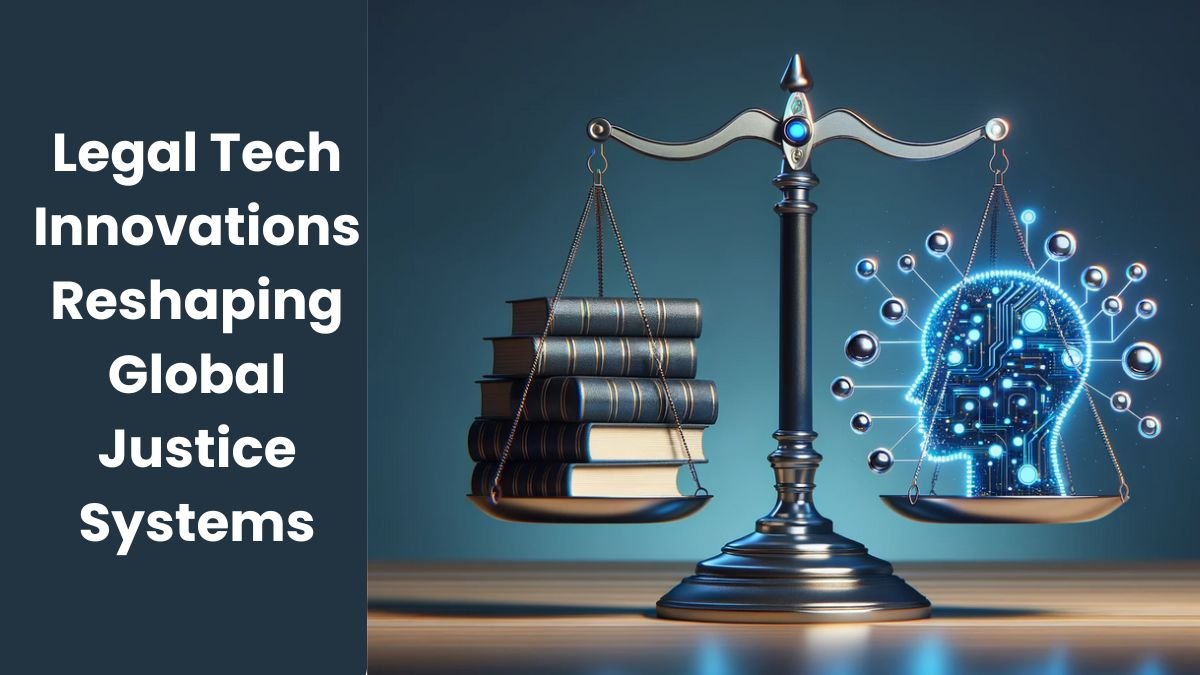Legal Tech Revolution is Changing the Global Justice System: Towards a New Direction Today is the era of technological advancement. Changes are taking place in every field and now the world of law is also not untouched by it. This profession based on tradition and precedent is now undergoing a major transformation due to technological innovations. “Legal Technology” or “Legal Tech” is not just a tool but a revolution, which is not only changing the way lawyers work, but is also giving new dimensions to the access, transparency and efficiency of the justice system.
Let us know how legal tech is taking the global justice system in a new direction today:
Making legal processes automated and efficient
While earlier tasks like document review, legal research and case management used to take hours, now with the help of Artificial Intelligence (AI) and automation, these can be done in minutes. AI-based platforms can now quickly analyze huge data, allowing lawyers to make better strategies.
For example, natural language processing-based contract analysis tools instantly spot risky clauses in a document, making the due diligence process much easier. This not only saves time but also allows lawyers to focus their time on more complex cases and strategies.
Making access to justice inclusive
Perhaps the biggest contribution of legal tech is that it has made justice accessible to the common man. Earlier, legal advice and services were too expensive and complex for ordinary citizens. But now with the help of online platforms, AI-based chatbots and customized legal document tools, people can get legal assistance at affordable rates.
Now people can create documents related to their case on online portals, understand the law and also know the process of filing a case. This has emerged as a new hope, especially for people in rural and remote areas.
Changes in legal education and professional roles
As technology is making its place in the legal sector, law colleges are also changing their curriculum. Now subjects like cyber law, data analytics, legal technology are being taught so that the coming generation is prepared for a digital world.
Along with this, some new professional roles are also emerging in the legal sector, such as legal technologist, legal data analyst, and legal project manager. These roles are different from traditional lawyers and demand technical knowledge as well as legal understanding.
Change in client expectations and service methods
In today’s era, clients expect transparency, speed and affordable services. With the help of legal tech, lawyers are now able to give real-time updates, online document access and analysis of the possible outcomes of the case to the client.
The use of AI can also provide predictive analytics of the possibilities of the case. This not only gives clear information to the client, but many firms have now started adopting ‘flat fee’ or ‘subscription model’ instead of traditional ‘per hour’ billing. This change is a big step towards transparency and client satisfaction.
Need for change in regulation
The rapid development of legal technology has forced regulators to think whether old rules are suitable for today’s technology-dominated world? AI accountability, data privacy and legal advice provided by automated systems—all these have become necessary to reconsider.
Regulatory sandboxes have been introduced in some countries, where legal tech innovations are tested in a controlled environment. This creates a balance—between innovation and consumer protection.
Promoting global collaboration and innovation
Legal tech is no longer limited to the local level. Legal professionals, tech experts and startups from around the world are now forming a global network where they are sharing ideas, experiences and technology.
International legal tech conferences, cross-border partnerships and open-source platforms are making the legal system more interoperable and flexible today. This is not only increasing global legal collaboration, but also creating better coordination among different justice systems.
Conclusion:
Technological overhaul of the justice system Legal Tech is not a passing trend but a far-reaching revolution that is reshaping the entire legal system. It is not only increasing efficiency but also broadening the reach of justice and redefining legal roles.
As society is changing, so are the definitions and requirements of justice. In such a situation, adopting and mastering technology is the biggest need of the hour, especially when it comes to justice and equality.
